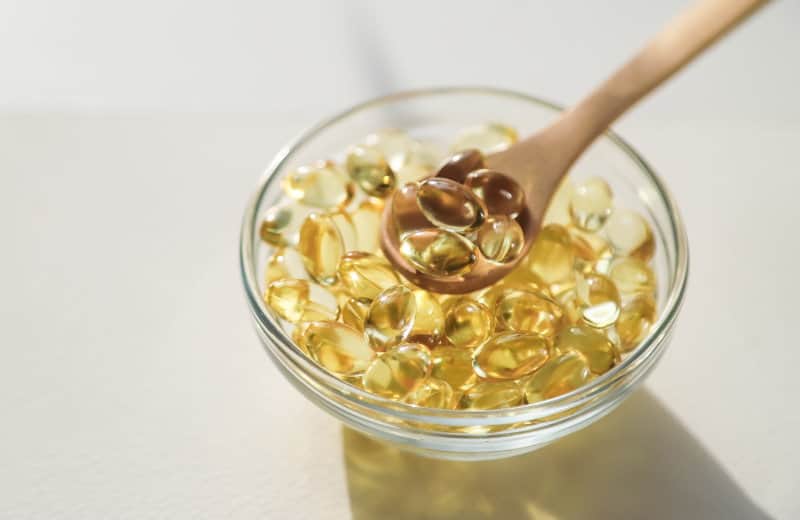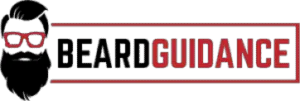All beardsmen want full, healthy facial hair growth. When facing patchy or thin beards, it’s reasonable to think outside the box for solutions to spur growth. There’s no shortage of products out there that claim to help promote beard growth. Many are essentially multivitamins, which made us wonder: that are the best vitamins for beard growth?
While there is no “silver bullet” to grow a fuller beard, many supplemental vitamins promote healthier hair development. These include vitamins A, C, and multiple B varieties. You can also achieve many of these extra benefits with lifestyle and dietary changes.
We want to discuss in more detail why men face beard growth issues and what vitamin solutions exist to help beard development.
Why Beards Grow … and Don’t Grow
We understand that when you’re dealing with a thin beard, the issue of how facial hair grows can feel downright mystical. We promise it’s not.
In general, facial hair begins growing on men’s faces around puberty. That is because facial hair, like armpit hair, chest hair, and pubic hair, is androgenic. That means that it requires the presence of testosterone and DHT to grow.
In contrast, the hair that grows from your scalp is terminal hair. It grows without the presence of androgenic hormones. That is why it grows on your head before your voice drops and your face gets spotty.
Of course, not all androgenic hair comes in at different rates and at the same time. Some guys get a full bushy beard, chest hair, and everything else at the beginning of adolescence. Others may get underarm hair, then wait months for anything more than peach fuzz.
There are many reasons for uneven facial hair growth. These include:
- Genetics – This is the most common reason for uneven facial hair. Men’s bodies go through puberty in different ways, and some genes lead to faster-growing, thicker facial hair. Often, patience is the best policy if you are still a teenager or even an early adult. Your body may not be finished developing.
- Blood-flow – The physiological makeup of your face plays a significant role in how your beard grows. Facial hair grows from follicles in your skin, and the follicles’ roots require blood flow for nutrients. The capillaries that deliver these nutrients might not be well-distributed on your face.
- Testosterone – We know this is a loaded issue because it can seem to speak to a guy’s masculinity and virility. However, men who are otherwise perfectly well-stocked in testosterone may not have the correct ratio to grow a thick beard. Lighter facial hair does not reflect a testosterone problem.
- Skin conditions – You might be suffering from a condition like alopecia, which renders part of your face bald. Some birthmarks and moles can lead to bare patches, as well.
Common Growth Issues that Beardsmen Face
What does it mean to say your beard doesn’t grow well?
As a general rule, most beardsmen deal with some growth issues. We have discussed these different issues in several posts. Some of the facial hair woes that guys most often face are:
- Gaps – You might find that they are gaps in your mustache or that your beard and mustache don’t connect.
- Patchiness – Sections of your face could be bare for many reasons: unequal distribution of follicles, scarring, or skin conditions like alopecia areata.
- Thinness – A see-through beard is often most apparent along the cheeks. While this is suboptimal if you want a genuine lumberjack pelt, many guys can rock an attractive, though slightly transparent, beard.
- Unevenness – Because blood vessels are not distributed uniformly throughout a guy’s face, sometimes one side of your beard will grow longer than the other.
Some conditions, like alopecia, will require a doctor’s consultation to address. However, if it appears that your lightweight or uneven facial hair results from blood flow to follicle roots, vitamin supplements might help. If your beard is starving for nutrients, why not try and feed it?
Vitamin Use – Internal and Topical

To reiterate, there are no magical solutions to grow facial hair. Any product that “guarantees” results is probably full of it.
In our experience, this is doubly the case with topical serums. On average, vitamins are more effective when ingested than applied topically, at least where growing facial hair is concerned. Don’t get us wrong. There are plenty of beneficial topical vitamins. For example, vitamin C serums are great for mitigating sun damage on the skin.
For the most part, all of the vitamins listed below are best when taken orally. Introducing these nutrients to your bloodstream is the surest way to ensure they find their way to your hair. If you rub them onto your face, they are not likely to absorb effectively.
With that in mind, let’s go through 9 vitamins that are perfect for beard growth.
#1 – Vitamin C
Is there anything that Vitamin C can’t do? It protects us from the sniffles. It mitigates high blood pressure. It even works to prevent scurvy and gout!
One of the reasons that Vitamin C is such an excellent catch-all supplement is that it promotes more robust blood flow. If there’s one thing we want to drill into your head, it’s that good blood flow equals better hair growth. As a bonus, it also promotes collagen production for your skin, which in turn helps your facial hair.
You can think of a Vitamin C supplement as motor oil for beard growth. It keeps things moving smoothly.
#2 – Vitamin B5
Pantothenic Acid, or Vitamin B5, increases cellular metabolism. More important for beardsmen, it can boost testosterone production.
Let’s pump the breaks, though. We are always wary when talking about testosterone. This vitamin is not a cure-all for low testosterone or DHT. A 2009 study in the Journal of Veterinary Medical Science showed a link between Vitamin B5 and “testicular function in male rats.” However, the increase in sperm mobility was marginal.
For beard growth, Vitamin B5 might have some worthwhile, if measured, effect.
Even so, B5 is excellent for improving energy since it helps your body process protein more effectively. So, it might be worth a try independently of hirsute pursuits.
#3 – Vitamin A
Your body produces a natural moisturizing agent called sebum. Sebaceous glands churn out this oil in your skin, and it serves multiple purposes. Sebum wicks away impurities in the skin. It also contains hormones, which has led some to speculate that it subconsciously attracts mates.
Healthy sebum production in the face is key to growing a healthy, full beard. It coats follicles, preventing breakage. Vitamin A speeds the production of this oil.
A word of warning: while sebum is beneficial in everyday life, overproduction can be a drag. Oily buildup from your sebaceous glands can lead to off-smells and pimples. If you have persistently oily skin, taking Vitamin A supplements could be counterproductive.
#4 – Niacin
Also called Vitamin B3, Niacin further dilates blood vessels to increase the delivery rate of nutrients, oxygen, and hormones throughout your face. This dilation, in turn, can further enrich follicle roots.
Niacin also reduces the risk of inflammation in your skin. Remember that irritated skin will be less likely to produce strong, robust facial hair. Finally, Niacin rebuilds keratin, a fibrous structural protein. Keratin is a vital building block in both surface skin and human hair.
In total, we recommend Niacin across the board. It offers tremendous upside for your scalp and facial hair, plus it is terrific for your skin.
#5 – Vitamin E
Vitamin E can have some positive effects on your facial hair when applied topically. Primarily, it is effective in reducing beard dandruff. It’s one of the reasons that this vitamin is a common ingredient in beard oil.
More generally, Vitamin E works well for increasing circulation when taken orally. The cosmetic benefit of this is more youthful skin and hair. Vitamin E has demonstrated that it can help soften wiry, coarse facial hair. Taken together, healthy skin on your face and soft hair in your beard create an environment where the mane on your cheeks can grow more quickly.
While we recommend, as always, that you take this Vitamin as an oral supplement, we wouldn’t discourage you from trying a Vitamin E face salve. It could be worth the investment, if only for its dandruff-reduction qualities.
#6 – Biotin
Another member of the Vitamin B squad, Biotin, can be found not only in supplements but also in shampoos and conditioners. The reason is that this vitamin effectively spurs enzymes to break down nutrients like fats, carbs, and proteins.
That process is essential in growing hair, nails, and outer layers of skin. So, does Biotin supercharge hair growth?
The short answer is that we aren’t sure. Many studies have concluded that taking Biotin and having fuller hair are connected. However, no scientific research has shown that the vitamin causes growth. Even so, we think that Biotin is worth taking a flyer on. As with all these vitamins, it has benefits that go beyond beard growth.
#7 – Folic Acid
Staying in the Vitamin B family, we come to Folate, which is synthesized for supplemental consumption as Folic Acid.
Hair growth depends on cell growth. As you age, cells grow at a slower rate. Folic Acid encourages renewed growth, building on the durability of the cells that comprise your face and hair.
Before you run out and buy a case of the stuff, though, let’s discuss why someone would need supplemental Folic Acid. As a general rule, you should only take this supplement if you have been diagnosed with a Folate deficiency, either because of age or a preexisting condition.
We are advising caution with Folic Acid because it is possible to overdose on vitamins. If your system naturally produces an appropriate amount of Folate, and you augment that with lots of Folic Acid tablets, you run the risk of ill effects, including jaundice and nerve damage.
#8 – Inositol
Farther down the line of Vitamin B, we have B8, or Inositol. As is often the case with natural supplements, people have attributed miracle properties to this vitamin. Some say it can treat depression, psoriasis, high cholesterol, and ADHD.
Do you know what they say about something sounding too good to be true? It probably isn’t true.
One thing that has been relatively well established about Inositol is its effect on hair. This supplement can improve the hydration of hair strands, and it promotes healthier, stronger follicles. The result can be fewer lost or broken hairs, as well as more active emergent hairs.
Additionally, the same properties that make Inositol effective at promoting beard growth also effectively address scalp baldness. Potentially, you could strike two hairless birds with one stone.
#9 – Zinc
Okay, strictly speaking, Zinc is a mineral, not a vitamin. Regardless, it’s still an excellent option for a beardsman looking for some additional growth.
People regularly take Zinc supplements to boost immunity and regulate metabolism. Wouldn’t you know it? It can also help with the pelt on your face!
Zinc is a powerful agent for building proteins and growing cells in the body. In fact, it’s a significant driver of DNA creation. So, perhaps we shouldn’t be surprised that Zinc has also been linked to more substantial, faster-growing hair.
In general, Zinc plays a crucial role in your bodily functions. Making sure you get enough of it is essential for holistic health as well as beard health. And as The Simpsons illustrated years ago, the world could not function without it!
Alternatives to Vitamin Supplements
To this point, we have discussed vitamin capsules and salves to achieve better beard growth. However, we believe you should think of vitamins as only one tool in a set of ways to improve the quality of your facial hair.
Here are some other things you can focus on to improve your beard health.

Exercise and Sleep
Simple though it may seem, getting ample sleep and regular exercise go a long way to spurring beard growth. Sleeping reduces stress and gives your body time to refresh itself. Both of these encourage follicle health on your head and your face.
A good exercise regimen does wonders for all-important blood flow. It also boosts your testosterone production. Beyond that, it will get you out in the open air and sunshine, which introduce natural nutrients to your bloodstream.
Diet
Here’s the thing – you could take a fistful of vitamin pills a day to get all the supplemental nutrients listed above. On the other hand, you can acquire a lot of them through diet. For example:
- Eggs, fatty fish, milk, and yogurt have plenty of Vitamin A.
- Leafy greens, shellfish, liver, beef, and beans are rich in various B Vitamins.
- Citrus fruit, bell peppers, strawberries, broccoli, and tomatoes all contain Vitamin C.
- All meats, fish, beans, and seeds are great for Zinc.
If you don’t want to spend additional money on supplements, adding more of these ingredients to your meals is an excellent way to introduce beard-healthy vitamins and minerals to your body.
Proper Washing and Grooming
Skin health is the pathway to good hair growth. Anyone wanting to improve the texture and thickness of his beard needs to consider how he washes and moisturizes his face. A proper beardsman’s grooming kit should include:
- A beard-specific cleanser and conditioner
- Beard oil and balm
- Face moisturizer
- A beard brush and comb
In particular, your conditioner, oil, and balm need to contain natural carrier oils that absorb into your face. These oils are vital to produce a well-hydrated, lush beard.
Medication
If you find that your beard does not respond to diet and exercise, vitamins and minerals, or washing and grooming, you might want to consider medication.
Happily, the most effective medicine for spurring facial hair growth has been studiously tested and is available over the counter. We are referring to minoxidil, the active ingredient in hair restoring drugs like Rogaine and Hims.
Minoxidil is a topical medicine that dilates blood vessels in the skin. While its stated use is for scalp hair, many guys have successfully applied it to their faces for beard growth. This is an off-label use, of course, and you should approach it with care. Minoxidil is a perfectly safe drug when used in the correct dosage. Read the instructions carefully.
The Bottom Line
As you can see, healthy beard growth depends on many different factors: genetics, hormones, blood flow, and various nutrients. You don’t have control over all of them. However, you can provide your body with vitamins that encourage facial hair growth.
As you look toward improving your beard health through vitamins, consider which nutrients you can boost through diet and which require a supplement. Talk to an employee at your local pharmacy or health store. They can guide you to the best multivitamin for your beardsman needs.
While you’re here, we encourage you to check out our recent article on beard growth serums and see which vitamins are common in those products.

